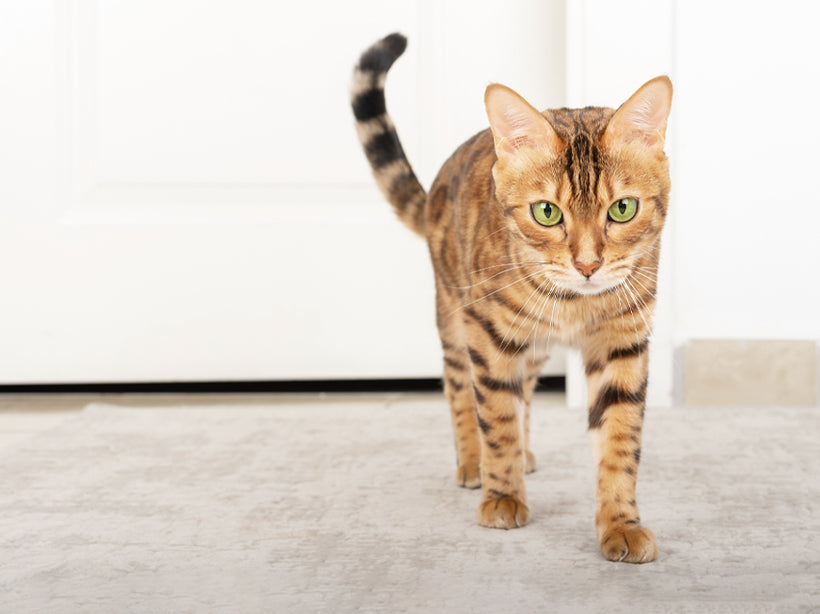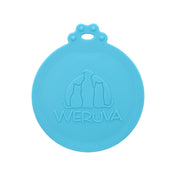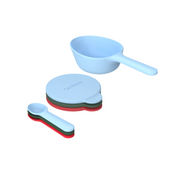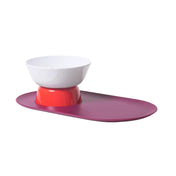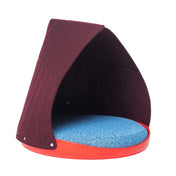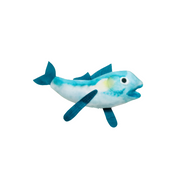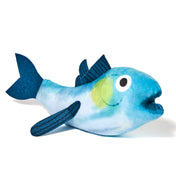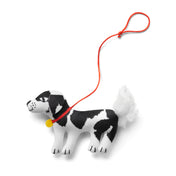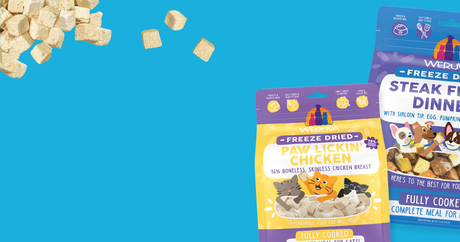You might not notice it right away. Maybe your cat jumps a little lower, naps a little longer, or feels a bit bonier when you pet them. These small shifts can be early signs of something more significant: muscle loss.
As cat parents, we want to keep them curious, playful, and thriving at every age. But as they grow older, even healthy cats experience natural changes that impact their energy, strength, and mobility. One of the most important, yet often overlooked, is the decline in muscle mass.
Supporting muscle health is essential for your cat’s strength, immune system, and overall quality of life. Let’s explore why senior cats lose muscle and what you can do to help, starting with nutrition.
What Causes Muscle Loss in Senior Cats?
 As cats age, they may develop sarcopenia, the age-related loss of muscle tissue. It can start as early as age 10 and may go unnoticed until your cat has already lost a significant amount of muscle.
As cats age, they may develop sarcopenia, the age-related loss of muscle tissue. It can start as early as age 10 and may go unnoticed until your cat has already lost a significant amount of muscle.
Common reasons senior cats lose muscle include:
- Reduced activity levels or exercise
- Lower digestive efficiency
- Decreased appetite or medical conditions like dental disease or chronic kidney disease
- Inadequate protein intake or lack of essential nutrients
A senior cat losing weight usually isn’t a sign that they're just shedding fat. They’re losing vital muscle mass that supports their day-to-day function and overall health.
Why Muscle Health Is Crucial for Senior Cats
Unlike fat, muscle is functional. It powers every jump, stretch, and tail flick. Muscle loss affects their ability to move comfortably, regulate body temperature, and recover from illness or injury.
You may notice signs like a bony spine, prominent hips or shoulders, reduced playfulness, or reluctance to jump. These are signs your cat could benefit from a specialized senior cat diet. For more signs of aging in cats, check out this blog post.
How Much Protein Do Senior Cats Need?
Here’s the surprising truth: older cats need more protein, not less.
Veterinary guidelines suggest older cats should aim for a daily protein intake of around 6 to 8.5 grams per kilogram of body weight. For example, a 10-pound cat would need roughly 27–38 grams of protein each day. They may need even more protein based on their health status.
Why the increase? As cats reach 10 to 12 years of age, their digestive system becomes less efficient. They absorb fewer nutrients from food, particularly protein, which is essential for maintaining muscle tissue. Diet adjustments can help prevent progressive weight loss and muscle wasting.
But it’s not just about feeding more protein. It’s about feeding the right kind.
Prioritize High-Quality Animal Protein
 Cats are obligate carnivores, meaning their bodies are designed to digest and thrive on meat-based proteins, not plants. The nutrients in chicken, turkey, beef, and fish are more bioavailable, meaning your cat can absorb and make use of them more efficiently.
Cats are obligate carnivores, meaning their bodies are designed to digest and thrive on meat-based proteins, not plants. The nutrients in chicken, turkey, beef, and fish are more bioavailable, meaning your cat can absorb and make use of them more efficiently.
Research shows that feeding high-protein cat food made with real meat helps ensure they’re getting the most nutritional value per bite. At Weruva, our senior cat food uses boneless, skinless cuts of meat to deliver the protein aging cats need to keep them strong. Get a breakdown of our senior cat formulas here.
When shopping for senior pet food, look for formulas that provide at least 50% of calories from animal protein sources, not from grains, legumes, or other plant ingredients. While that’s the recommended minimum, remember that cats are carnivores, which means they’re biologically designed to get most (if not all) of their protein from meat. The more of your cat’s protein and calories that come from real, high-quality meat, the better for maintaining strong muscles and overall health.
Don’t Forget About Calories and Hydration
Many assume older cats need fewer calories, but that’s not always the case. In fact, many senior cats benefit from a more calorie-dense diet, especially if they’ve lost weight or muscle. Aging bodies don’t process protein and fat as efficiently, so your cat may need more calories per bite to maintain body composition.
Hydration also plays an important role in muscle health. Older cats often drink less water, increasing their risk of dehydration, which can affect digestion and nutrient absorption. Feeding wet cat food provides more moisture, protein, and flavor. This is key for enticing picky eaters and supporting muscle health.
When to Talk to Your Vet
If your senior cat is losing weight, showing signs of muscle loss, or has lower energy levels, it’s a good time to schedule a checkup. Aging is individual. What works for one cat may not work for another. A physical exam, lab tests, and a diet review can help ensure your cat’s unique needs are being met.
Ask your vet about:
- Muscle condition scoring
- Bloodwork to evaluate kidney and liver function
- Nutrition plans with the right balance of protein and calories
Catching changes early gives you more options to support your cat’s health and quality of life.
Keep the "Purr" in Performance
Your senior cat may be slowing down, but they’re still full of personality and love. Supporting muscle mass in senior cats through proper nutrition is one of the most powerful things you can do to help them stay active, agile, and comfortable.
Getting older doesn’t have to mean getting weaker. Support your cat’s journey through every life stage with quality wet cat food, lots of protein, and a whole lot of love. Because strong muscles mean more snuggles, more playtime, and more of the moments that matter most.

